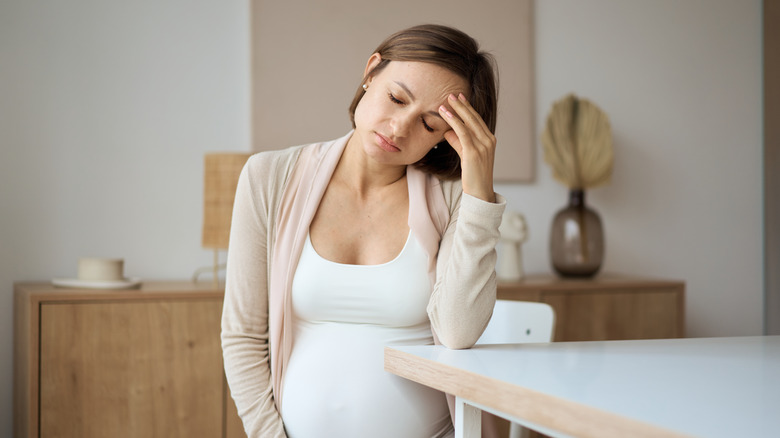Do Antidepressants Work For Depression During Pregnancy?
Many of us have experienced times where we felt down or didn't feel like ourselves, but singing along with our favorite song or eating our favorite meal cheered us up. However, overcoming depression is much more than singing away the blues. According to the American Psychiatric Association, depression is a medical condition that lasts for at least two weeks. Depression negatively affects your feelings, thoughts, and actions.
You may be familiar with postpartum depression, but depression can happen during pregnancy as well. According to the Mayo Clinic, depression is twice as likely to start during reproductive years. Women who have a poor support system, anxiety, high stress, or a history of depression are at risk for developing depression during pregnancy. If a woman has depression during pregnancy, receiving treatment is important for the health of her and her baby. In addition to counseling, antidepressants may be prescribed to help treat depression in pregnant women.
Antidepressants are not always effective during pregnancy
With all of the changes that take place during pregnancy, you may be wondering if antidepressants work the same for pregnant women. According to U.S. News & World Report, a new study reveals that antidepressants are not always effective for expecting moms. During this 2022 study published in Psychiatry Research and Clinical Practice, 88 pregnant women were given assessments to monitor the presence of depression every four weeks until delivery and at six and 14 weeks postpartum. The results of the assessments revealed that 18% of women were minimally depressed, 50% were mildly depressed, and 32% were clinically depressed. Although the women were treated for depression with antidepressants called selective serotonin reuptake inhibitors (SSRIs), symptoms of depression remained, even after birth.
Dr. Katherine Wisner, the director of the Asher Center for the Study and Treatment of Depressive Disorders at Northwestern University Feinberg School of Medicine, tells U.S. News & World Report, "These women need to be continually monitored during pregnancy and postpartum, so their clinicians can tailor their treatment to alleviate their symptoms."
Improving the outcomes of treatment for depression in pregnant women will require more screening by doctors. According to Dr. Catherine Stika, a clinical professor of obstetrics and gynecology at Northwestern, "Repeated screenings will allow your clinician to adapt the type and/or intensity of intervention until your symptoms improve" (via U.S. News & World Report).


